Project Funding Breathes New Life into Monitoring Greenland's Seafloor
23.11.2023The Greenland Climate Research Centre and the Greenland Institute of Natural Resources have received funding of DKK 17.2 million for ..
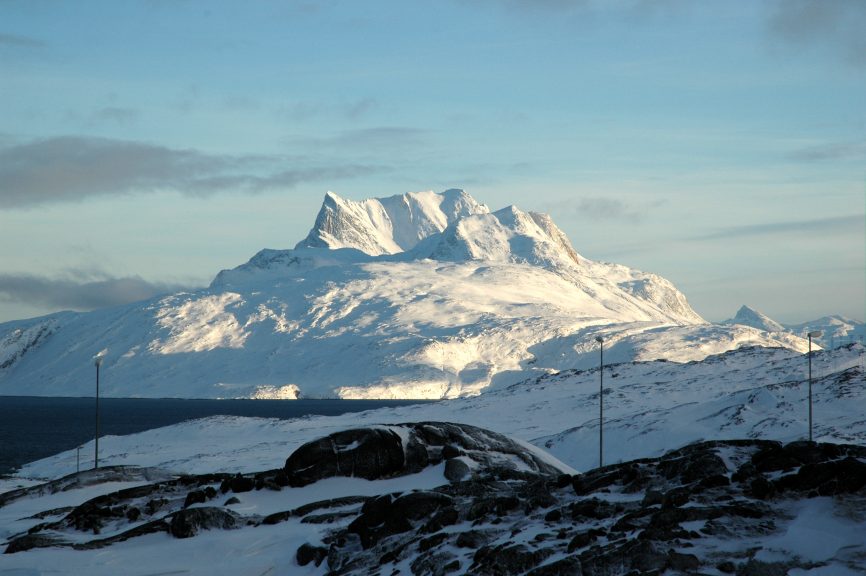
To apply for courses in the Arctic Science Study Programme (ASSP), please complete the “Student Information” form below. After submitting the completed form you will receive an e-mail with details on how to proceed with register for the courses and other practical information.
The ASSP offers graduate (masters) and PhD level courses. The courses in spring form one full semester (30 ECTS). Applicants applying for a full semester are given priority, however, it is possible to apply for single courses. You can find more information about the courses under Arctic Science Study Programme (ASSP).
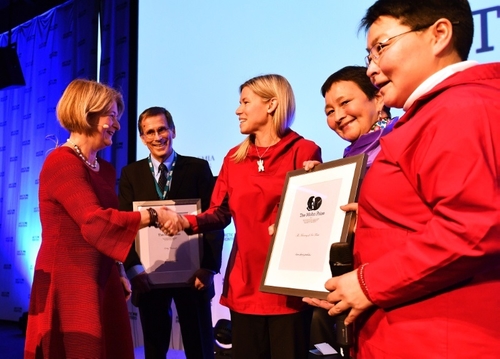
‘The Meaning of Ice’ is the title of a comprehensive research project, which has been underway for ten years. Thirteen scientists have studied the dynamics between humans and the sea ice under changed environmental conditions
The scientists have visited and collaborated with more than 40 participants from Alaska, Canada and Greenland. The theme was ‘Siku-Inuit-Hila’ (ice, human, universe/weather).
“We have travelled thousands of kilometres to document the Inuit perception and use of sea ice. It has been important for us to collect local knowledge about the sea ice and obtain first-hand accounts of climate change and the effects on daily life,” a happy and proud Lene Kielsen Holm says at the award ceremony.
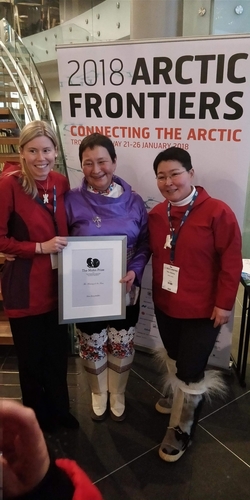
Shari Fox Gearheard (project manager), Lene Kielsen Holm, the Greenland Climate Research Centre, and Toku Oshima, Qaanaaq, from the research group behind the project ’The Meaning of Ice’ at the Mohn Prize award ceremony during the conference ’Arctic Frontiers’ in Tromsø. Photo: Mie S. Winding.
Local knowledge secured for the future
The many locals participating in the project have a unique, experience-based knowledge about the Arctic. And the jury, in its evaluation to honour ‘The Meaning of Ice’, states, among other things, that the project is a remarkable example of a collaboration between academics and local experts, which has provided us with new knowledge and understanding of the dynamics of the Arctic sea ice.
At the time the project was launched, Lene Kielsen Holm was employed at the Inuit Circumpolar Council. Since 2012, she has worked on research projects at the Greenland Institute of Natural Resources and, from 1 January 2018, she is a permanent employee at the Greenland Climate Research Centre at the Greenland Institute of Natural Resources.
“We want to expand the research programme ‘Climate and Society’ at the Climate Research Centre. Locals in Greenland have a unique expertise in their surroundings, which we want to document and incorporate into our research projects,” says Head of Department for the Climate Research Centre Malene Simon.
“Lene has helped develop a completely new methodology of collecting and combining scientific and local knowledge, and we are very proud of the accomplishments of the ‘Meaning of Ice’-team,” continues Malene Simon.
Even though the project ’The Meaning of Ice’ has officially ended, Lene Kielsen Holm will continue her work.
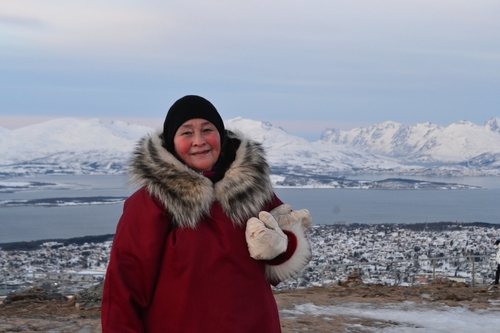
Lene Kielsen Holm, the Greenland Climate Research Centre, in Tromsø in connection with the Mohn Prize award ceremony 2018. Photo: Else Ostermann.
The work continues
“To really understand the life in the Arctic and deal with the changes happening, we must look at the challenges with several different approaches. It is imperative that we respect that humans in remote areas have other ways of living and a different knowledge than the rest of us,” says Lene Kielsen Holm.
Therefore, it is the wish of the research group to continue to collect the indigenous population’s knowledge and experience, to secure them for the future.
“The demand for Lene’s expertise is high, and we are short of people able to carry the task and develop the research area. That is why we, at the Greenland Climate Research Centre, work intensively to find the funds for it,” says Malene Simon.
The Mohn Prize
The Mohn Prize takes its name from the family Mohn. Henrik Mohn (1835-1916) was one of the pioneers to explain the key processes in the Arctic. He was also the great-uncle of the father of the business man Trond Mohn.
Trond Mohn has donated 2 million NOK to the prize, which was awarded for the first time at the conference ’Arctic Frontiers’ in Tromsø. The prize will be awarded every two years.
The primary purpose of the prize is to put issues of particular relevance to the future development of the Arctic on the national and international agenda.
The Greenland Climate Research Centre is part of the Arctic Science Partnership (ASP). For more information on ASP: www.asp-net.org
Further information:
Scientist and project manager, Lene Kielsen Holm; email: leho@natur.gl; phone: +299 361218
Head of Department Malene Simon; email: masi@natur.gl; phone: +299 548977
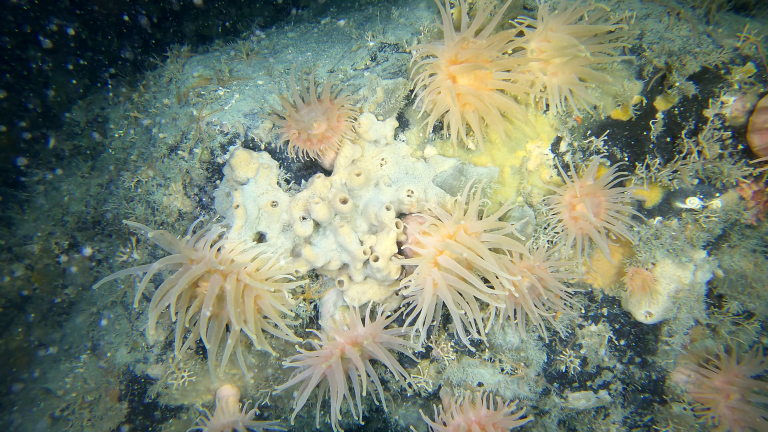
The Greenland Climate Research Centre and the Greenland Institute of Natural Resources have received funding of DKK 17.2 million for ..
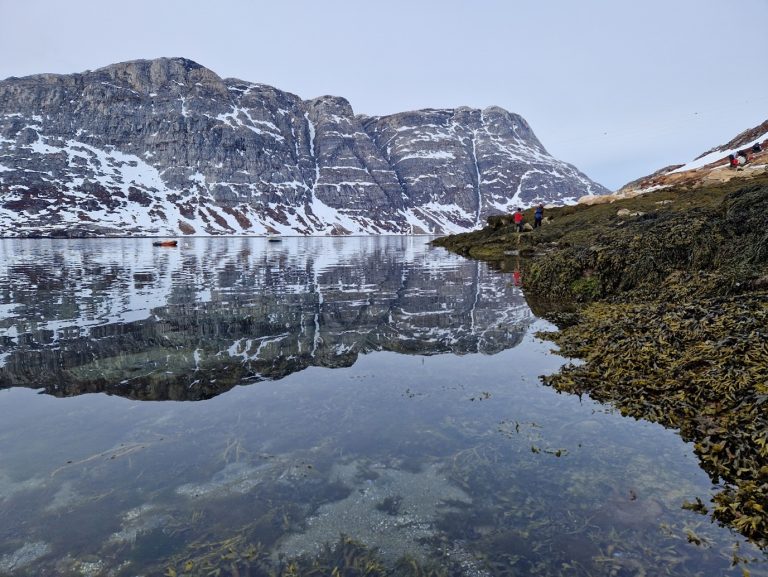
Macroalgae or seaweed are dominating rocky coastlines globally. Even here in Greenland, we can see small kelp such as the ..
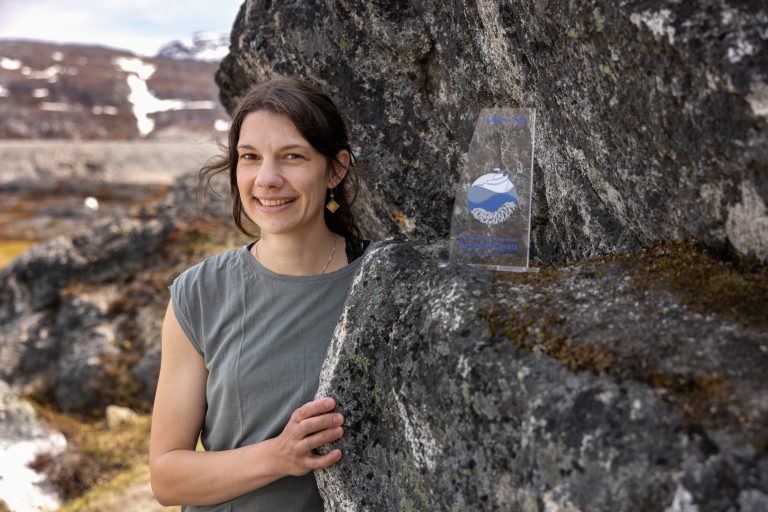
The dark, cold deep sea harbors many unseen treasures, one of which is corals that most people only associate with ..